- Home
- Timothy Zahn
The Third Lynx (Quadrail Book 2) Page 7
The Third Lynx (Quadrail Book 2) Read online
Page 7
Only then, with some time and privacy on our hands, did I dig out the flat case I’d stolen back from the Halka.
“Where did you get that?” Bayta asked as I pulled it from my jacket pocket.
“From the walker who’d just taken it from Morse,” I told her.
From the feel as I’d picked the Halka’s pocket I’d guessed it was a data chip case, and I was right. About fifteen centimeters long, two wide, and one deep, it could hold up to thirty data chips in protected, padded niches.
“Is that why the Modhri attacked him?” Bayta asked.
“Either that or he just felt like giving his walkers some exercise,” I said, turning the case over in my hands and studying in particular its lock and hinge sides.
Bayta watched me in silence for a few more seconds. “Well?” she prompted.
“Patience,” I said, pulling out my reader and inserting the data chip that turned it into a powerful sensor. “Data chip cases are sometimes booby-trapped to fry the chips if the wrong person opens it.”
For once, my paranoia was unwarranted. The case wasn’t rigged. “Let’s see what the well-equipped ESS Special Agent is reading these days,” I said, and popped it open.
Inside were a dozen data chips. None of them, I guessed, was light summer entertainment. “Let’s assume he’s the organized type,” I suggested, pulling out the last one in the line. It was the same type of chip I’d gotten at Helvanti, the sort the Spiders used for cross-Quadrail messages and information packets lasered to the Tube from the collection center in the local transfer station. Wondering who was sending Morse fan mail, I inserted it into my reader.
The display filled with lines of apparently random characters. What the well-equipped ESS Special Agent was reading these days was heavily encrypted. “Can you decode it?” Bayta asked.
“That may not be necessary.” Handing the reader to Bayta, I got up and went across to the rack where Morse’s outer clothing had been hung. His reader was in the standard inside jacket pocket. “People running the same routine day after day sometimes get careless,” I told Bayta as I rejoined her. “Specifically, they sometimes neglect to scramble-clear the decryption program after they’ve read something.” I turned on the reader and inserted Morse’s chip.
He hadn’t been as careless as he might have been. But he’d been careless enough. The display still came up gibberish, but there was now a helpful tab at the bottom of the screen asking if I wanted the message translated into another language. I keyed it, and a moment later we had clear, readable text.
“Good thing the Modhri didn’t get the reader, too,” Bayta commented.
“That was probably next on his list,” I told her. Scrolling down past the standard classified-document warning and a five-color ESS logo, I got to the meat of the document.
Some meat.
TO: Ackerley Morse, Terra Station
FROM: ESS Central, Geneva
RE: Urgent information request
Confirm your report re death of Rafael Künstler on Terra-Bellis Quadrail #339721. Current data attached.
Current assignment re Lady Dorchester suspended. Locate and detain Daniel Stafford immediately as person of extreme interest. Current data attached.
“Do you know these people?” Bayta asked as she read over my shoulder.
“I know one of them,” I said. “At least by reputation. Rafael Künstler is—was, rather—one of Earth’s upper-crust multibillionaires. Maybe he’d made it all the way to trillionaire; I’m not sure. He was something of a recluse, which is probably why I didn’t recognize him.”
“He was one of Earth’s rich and powerful?” Bayta asked pointedly.
I grimaced. Up to now the Modhri had mostly left humanity alone, for which we were all very grateful. But every other time he’d made a play for power across the galaxy, his attack pattern was to target a people’s leadership: political, military, economic, and social. The typical Human trillionaire would fit nicely into at least two of those categories. “Hard to imagine the Modhri letting one of his walkers get beaten to death,” I said. “All that shared pain through the whole mind segment, remember.”
“Maybe that’s what he wants us to think,” Bayta said. “And don’t forget, Mr. Künstler did say he hates you. Who could he have meant besides the Modhri?”
“Could be any number of people, actually,” I said. “Besides, referring to the Modhri that way would imply Künstler knew something about him. Walkers usually never figure that out.”
“Maybe he was smarter than most.” Bayta paused. “Or maybe he had friends who could figure it out for him.”
I scratched my cheek thoughtfully. As far as I knew, there were only two Humans besides Bayta and me who were even aware of the Modhri’s existence: Bruce McMicking, chief troubleshooter for multitrillionaire industrialist Larry Hardin, who I’d once worked briefly for; and Deputy UN Director Losutu, who had supposedly put Künstler on my trail to begin with.
Both men had been sworn to secrecy, but I wasn’t naive enough to think their solemn oaths would hold traction forever. Calling up the reader’s search page, I punched in McMicking’s and Losutu’s names.
McMicking’s came up dry. Losutu’s didn’t. There, tucked away at the bottom of the document, was what looked almost like an almost-forgotten afterthought:
ADDENDUM
FROM: Deputy Director Biret Losutu, UN Directorate, Geneva.
Bona fides of former Westali agent Frank Compton confirmed beyond question. He can be taken into your fullest confidence.
“Uncommonly kind of Director Losutu,” I commented, angling the reader to show Bayta the note. “Though in my experience ringing endorsements like that usually come with fairly nasty situations attached.” I scrolled back to the top of the document. “Let’s see how nasty this one is.”
The first data file was a summary of the life and times of the late Mr. Künstler.
Like many of Earth’s wealthiest people, he’d gotten a head start by arranging to have himself born to parents who were themselves already stratospherically rich. Unlike many in that position, though, he hadn’t rested on their laurels or frittered his inheritance away with riotous living. Instead, he’d taken the money and run with it, building an economic empire that had dwarfed even that of his parents. According to the best estimates, he had indeed made it to trillionaire status before his untimely death.
The wealth and power hadn’t come without a few speed bumps along the way, of course. In his early twenties he’d been lured briefly into the stereotypical rich kid’s skating-on-the-edge life mode, which had been quickly and inevitably followed by half a dozen paternity suits. He’d taken the quick route back to peace and quiet, paying off the claimants without wasting time contesting the charges, and having learned from his mistakes retired to his estate in the Bavarian Alps to focus on business. From that point on, he’d largely limited his Human contacts to his staff, his business associates, and his older and more trustworthy friends.
And with a frenetic social life no longer a viable hobby, he’d turned his thoughts and bankroll to art collecting.
He’d gotten pretty good at it, too. Somewhere along the line he’d built a warehouse-sized gallery on his estate, constructing a labyrinth of passageways inside it with nooks and display cases and panels along every wall and around every turn. The report included a few quotes from art critics and connoisseurs who’d toured the place, all of whom praised the experience as unique and exciting.
Two of the critics had expressed hope that the collection might someday be opened to the public. A counterquote from Künstler made it clear that would happen when hell froze over.
The rest of the file was taken up with a summary of Künstler’s various business ventures, plus lists of colleagues, family members—all the way out to fourth cousins—and friends. That last list was definitely the shortest of the three.
Bayta spotted that, too. “He didn’t have many friends, did he?” she murmured.
“Who do
the superrich have to hang out with except the rest of the superrich?” I pointed out. “Hardly the gene pool I’d want to have to choose my friends from.”
“And that opinion is based on what?” Bayta asked dryly. “One man?”
“I’m sure Larry Hardin is good to his dog and has a wonderful singing voice,” I said, thinking back to our last meeting, when I’d stuck him for a trillion dollars, and our subsequent less-than-amicable parting. “Doesn’t mean I’m in any hurry to renew our acquaintanceship.”
“He did help us out, you know.”
“Unknowingly, and only after I blackmailed him into it,” I reminded her, scrolling past the list of Künstler’s business addresses and contact information to the second data file on the chip.
It was yet another police report.
“They have a report already?” Bayta asked, frowning.
“This isn’t about his murder,” I said, my eyes automatically finding the line marked Crime Description. “Looks like there was an attempted burglary of his art gallery a few weeks ago.”
An extremely strange burglary, too, I saw with growing interest as I read through the report. The perps had been an unlikely gang of six midlevel bureaucrats from the UN’s Geneva HQ, who nevertheless had handled themselves with a professionalism that had apparently impressed even the police officer who’d written up the report. He’d gone into considerable detail, in fact, on their technique in penetrating the grounds and the art gallery, including their disarming of the alarm system.
Incredibly, though, especially after all that care, they were still wandering the twisting pathways and staircases an hour later, the shoulder bags they’d brought with them still empty. At that point they’d been surprised by Künstler himself, who had apparently come in to commune with the Old Masters. He’d sounded the alarm, and in the resulting very one-sided fracas all six burglars had been killed.
But not before one of them had found the strength to ask Künstler where the Nemuti Lynx was.
“Well, if we still had any doubts the Modhri was involved, this pretty well clinches it,” I told Bayta as I handed her the reader.
“Which part?” she asked, frowning at the text.
“The part where one of the perps wastes his dying breath asking where the Lynx is.” I pointed to the place.
I saw Bayta’s throat tighten. “The walkers weren’t all inside the grounds,” she said. “There was at least one still outside.”
“Exactly,” I agreed. “Hoping Künstler would tell him where he’d stashed the Lynx.”
“Unless the inside man had an open radio channel to someone?” Bayta suggested.
I shook my head. “Standard procedure in a case like this is to immediately jam all communications except the private rolling-link system the security people themselves are using. No, the only messages getting out right then would have been across a Modhri mind segment.”
“I just hope Künstler didn’t tell him.”
“He didn’t,” I assured her grimly. “His lethal interrogation aboard the Quadrail proves that much.”
Bayta shivered. “What in the galaxy does he want with these things?”
I shrugged. “Between our attack on his homeland and the pressure Fayr’s been putting on his Belldic outposts, he has to be finding himself a bit on the ropes these days. Every good soldier knows that the first rule of retreat is to have someplace to retreat to. Could be he’s made a deal with one of these ultrarich collectors to trade the complete Nemuti collection for a chunk of cold-water territory he can call his own.”
Bayta stiffened. I didn’t blame her. The thought of the Modhri going underground, regrouping, and relaunching his campaign against the galaxy on his own terms and with his own timing was very much at the top of my Things We Don’t Want To Happen list. “How do we stop him?” she asked.
“We start by ignoring the big, scary view and focusing on the immediate job at hand,” I told her. “Künstler’s murder shows the Modhri’s still after this third Lynx. We have to make sure we get to it first.” I took back the reader and scrolled to the next file. “And we start by finding out what they’ve got on this person of extreme interest.”
The third file on the chip, as expected, was a brief biography of one Daniel Josef Stafford.
He was twenty-six years old, the son of one of Künstler’s top business managers. Born into the Künstler inner circle, he’d spent a lot of time on the estate when he was growing up, hobnobbing with the rich and powerful among his father’s friends. The usual pattern in these cases, I knew, was for the kid to be groomed for golden-cog status, then inserted into some cushy midlevel corporate job as soon as he graduated from college.
That might still be the plan, but as yet the big event hadn’t happened. Stafford had taken to the collegiate lifestyle with a vengeance, so much so that he’d apparently decided to make a full-time career of it. In the past eight years he’d bounced his major around like a fumbled football, switching from business to economics to art appreciation to psychology. If the attached course schedule was up-to-date, he was currently splitting his class time between the odd duo of alien sociology and techniques of advertising.
His free time was equally well packed. During his teen years he’d become adept with both skis and lugeboard, and every chance he got he was off Earth and onto the Quadrail to match his skills against some of the galaxy’s most challenging slopes.
Despite his unfocused ambitions, relations with his parents seemed to have remained good. He still dropped in on them at the Künstler estate a couple of times a year, where he also made a point of touring Künstler’s art gallery to see what the boss had added since his last visit. Showing off his art appreciation classes, no doubt.
His last visit had been the weekend of the abortive burglary. He hadn’t been seen or heard from since that night. Nor had his ID been logged through at any air, sea, or land entry portal, nor had he used any of his credit tags anywhere in the Terran Confederation. As far as ESS could tell, Daniel Stafford had simply dropped off the edge of the universe.
“Do you think he was killed?” Bayta asked.
“I doubt it,” I told her. “His body wasn’t found on the scene, and I can’t see the Modhri dragging him all the way across the grounds just to kill him somewhere out of sight.”
“Unless the Modhri thought Mr. Stafford had the Lynx,” Bayta suggested.
“Which is a pretty good bet anyway,” I agreed. “Stafford on the estate; Stafford and the Lynx no longer on the estate. Hence, person of extreme interest.”
“I don’t know,” Bayta said doubtfully. “It sounds like the Lynx had been sitting around there for years. Why wait until now to steal it?”
“The simplest and most obvious answer is that the Modhri got to Stafford with an offer too good to pass up,” I said. “That’s probably ESS’s current reasoning, too. Except the Modhri part, of course.”
“But you don’t believe that?”
I shrugged. “Cops like simple answers,” I said. “And to be honest, most crimes do end up shaking out that way. But this case has a few too many unanswered questions.”
“Such as?”
“Such as why Künstler was on the Bellis Quadrail,” I said. “Was he chasing Stafford, or was he on some mission of his own? He was certainly doing something underhanded—there’s no other reason for him to be running alone and under a false ID. And whatever he was up to, if the Modhri already had the Lynx or knew it was on the way, why beat him to death?”
“Maybe Mr. Stafford is planning to sell the Lynx to someone else,” Bayta suggested. “Maybe the Modhri realized that and needs to find him before the Lynx disappears into another private collection.”
“That’s sort of where I’m leaning on the whole thing,” I agreed.
“You think Mr. Stafford is the Daniel Mice Mr. Künstler spoke about?”
“I’d say it would be straining the bounds of probability to have a second Daniel running around this case,” I told her. “But since we
can’t find Daniel Mice and ESS can’t find Daniel Stafford, it would seem he’s got at least one other name in his collection.”
“So we’re basically stuck.”
“At least as far as his name goes.” I raised my eyebrows as a sudden thought struck me. “Unless we don’t need his name. Could the Spiders locate him if we provide them with a photo?”
Bayta pursed her lips. “Probably not,” she said regretfully. “Conductors can learn to distinguish Human faces—they can recognize the two of us, for instance. But they aren’t going to be able to pick a random Human face out of a crowd.”
I grimaced. But I really should have expected that answer. “In that case, we’re back to old-fashioned detective work,” I said, scrolling to the next page. “Let’s see if ESS was kind enough to provide us with a search platform.”
They had. The next two pages of the file listed Stafford’s relatives, closest friends, classmates, and fellow lugeboard junkies. It was, I noted cynically, a considerably longer list than Künstler’s own. Apparently there were social advantages to being only slightly obscenely rich.
The three pages after that included Stafford’s favorite hot spots, on Earth and elsewhere, a list of every place he’d visited during his wanderings, plus every travel, work, and play habit anyone had been able to statistically dredge up from his life’s history. “I can’t believe how fast they pulled all this together,” Bayta commented when we finally reached the end.
“They’ve had five weeks since he and the Lynx disappeared,” I reminded her. “This wasn’t something they came up with after Morse messaged them that Künstler had been murdered.”
Bayta’s eyes went slightly unfocused. “Two drudges have arrived outside with the luggage we left aboard the last Quadrail,” she reported.
“Good,” I said. “Go let them in—I’ll be with you in a minute. Just leave the bags in the waiting room, though, until I’ve had a chance to look them over.”

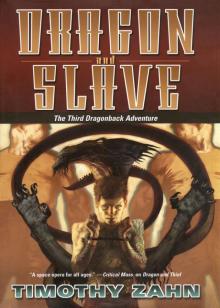 Dragonback 03 Dragon and Slave
Dragonback 03 Dragon and Slave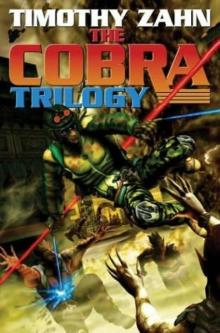 Cobra Bargain
Cobra Bargain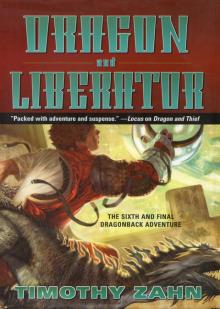 Dragonback 06 Dragon and Liberator
Dragonback 06 Dragon and Liberator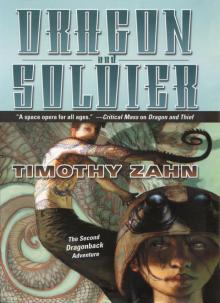 Dragonback 02 Dragon and Soldier
Dragonback 02 Dragon and Soldier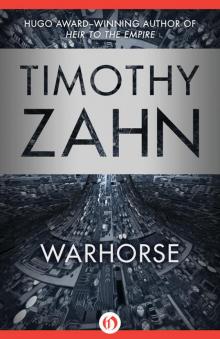 Warhorse
Warhorse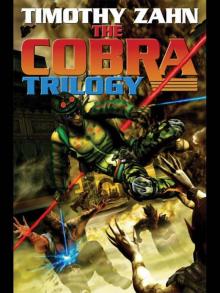 The Cobra Trilogy
The Cobra Trilogy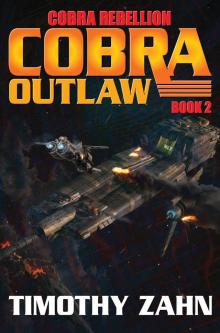 Cobra Outlaw - eARC
Cobra Outlaw - eARC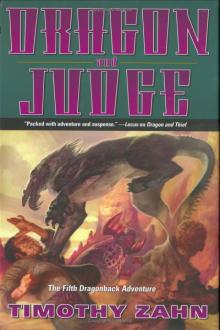 Dragon and Judge
Dragon and Judge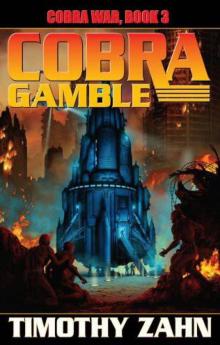 Cobra Gamble
Cobra Gamble The Domino Pattern
The Domino Pattern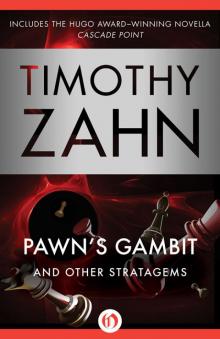 Pawn's Gambit: And Other Stratagems
Pawn's Gambit: And Other Stratagems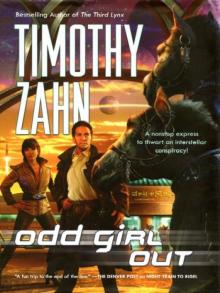 Odd Girl Out
Odd Girl Out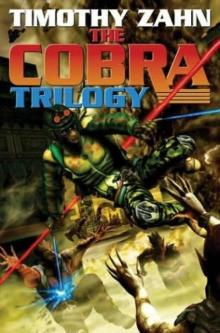 Cobra Strike
Cobra Strike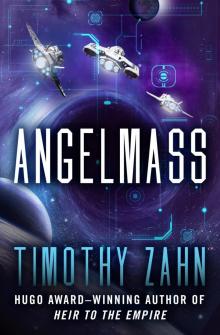 Angelmass
Angelmass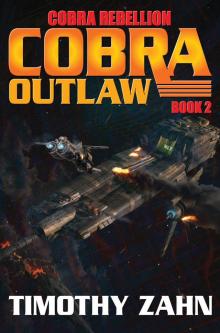 Cobra Outlaw
Cobra Outlaw Heir to the Empire
Heir to the Empire The Icarus Hunt
The Icarus Hunt Star Wars - Thrawn Trilogy - The Last Command 03
Star Wars - Thrawn Trilogy - The Last Command 03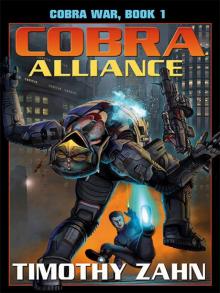 Cobra Alliance
Cobra Alliance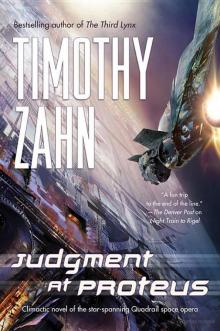 Judgment at Proteus
Judgment at Proteus Star Wars - Thrawn Trilogy - Dark Force Rising 02
Star Wars - Thrawn Trilogy - Dark Force Rising 02 Conquerors' Legacy
Conquerors' Legacy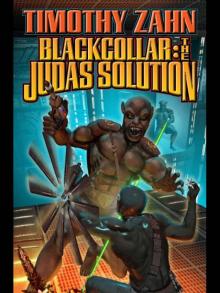 The Judas Solution
The Judas Solution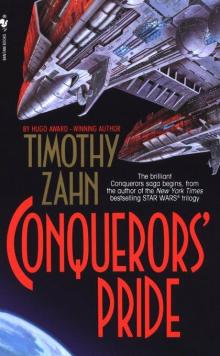 Conquerors' Pride
Conquerors' Pride Hammer of the Gods
Hammer of the Gods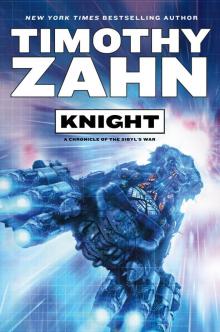 Knight
Knight Ghost Riders in the Sky
Ghost Riders in the Sky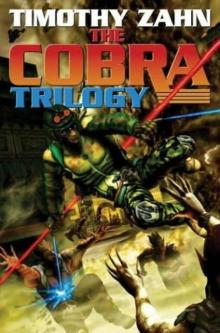 Cobra
Cobra Deadman Switch
Deadman Switch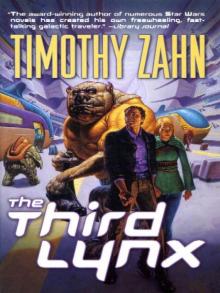 The Third Lynx
The Third Lynx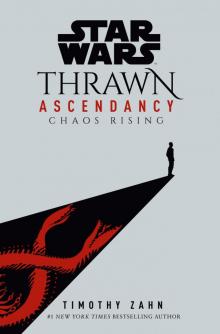 Chaos Rising
Chaos Rising Star Wars - Thrawn Trilogy - Heir to the Empire 01
Star Wars - Thrawn Trilogy - Heir to the Empire 01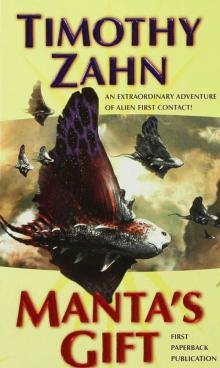 Manta's Gift
Manta's Gift Spinneret
Spinneret Soulminder
Soulminder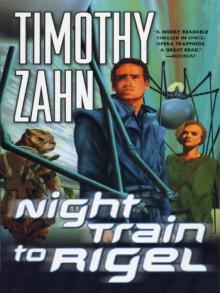 Night Train to Rigel
Night Train to Rigel Blackcollar
Blackcollar Conquerors' Heritage
Conquerors' Heritage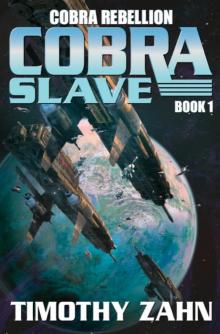 Cobra Slave
Cobra Slave A Coming of Age
A Coming of Age Triplet
Triplet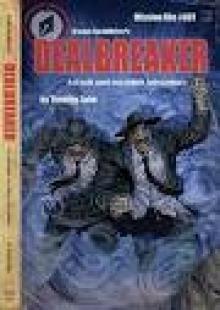 Dealbreaker
Dealbreaker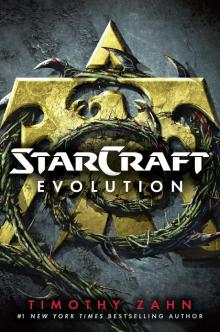 StarCraft
StarCraft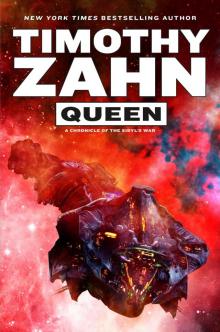 Queen
Queen The Last Command
The Last Command Star Wars: The Last Command
Star Wars: The Last Command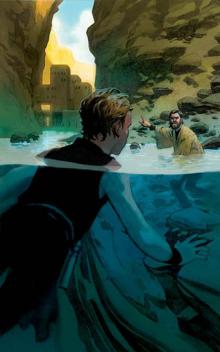 Star Wars Clone Wars: Changing Seasons
Star Wars Clone Wars: Changing Seasons Scoundrels
Scoundrels Conquerors 2 - Conquerors' Heritage
Conquerors 2 - Conquerors' Heritage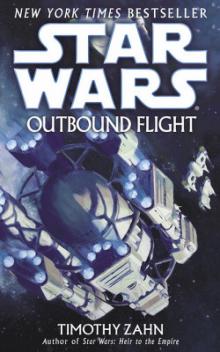 Outbound Flight (звёздные войны)
Outbound Flight (звёздные войны)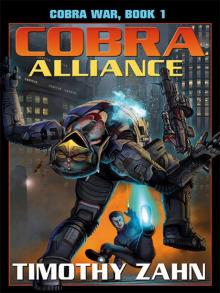 Cobra Alliance-Cobra War Book 1
Cobra Alliance-Cobra War Book 1 Hero of Cartao 2. Hero's Rise
Hero of Cartao 2. Hero's Rise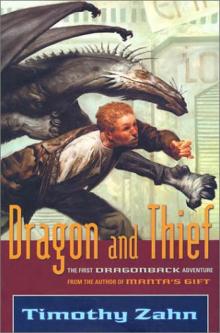 Dragon and Thief d-1
Dragon and Thief d-1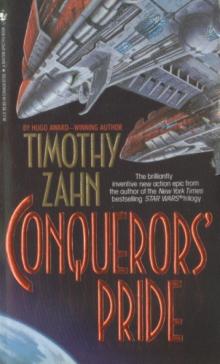 Conquerors 1 - Conquerors' Pride
Conquerors 1 - Conquerors' Pride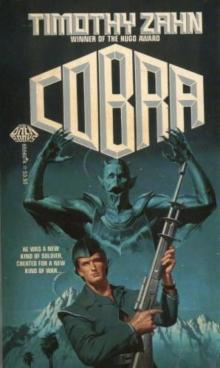 Cobra Alliance cw-1
Cobra Alliance cw-1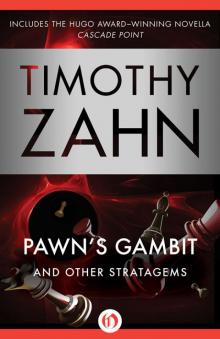 Pawn’s Gambit
Pawn’s Gambit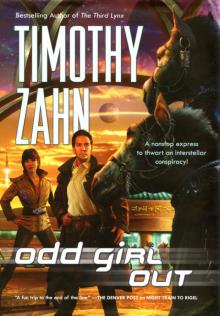 Odd Girl Out q-3
Odd Girl Out q-3 Dragon and Slave
Dragon and Slave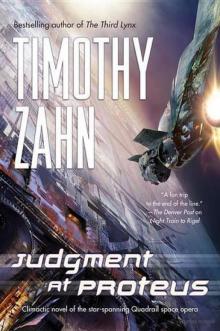 Judgment at Proteus q-5
Judgment at Proteus q-5 Night Train to Rigel (Quadrail Book 1)
Night Train to Rigel (Quadrail Book 1)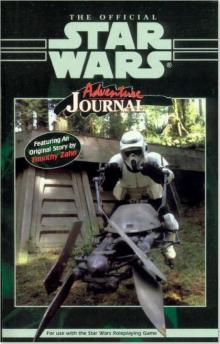 Star Wars: Adventure Journal 11: Command Decision
Star Wars: Adventure Journal 11: Command Decision Dragon And Soldier
Dragon And Soldier Hero of Cartao 3. Hero's End
Hero of Cartao 3. Hero's End For Love of Amanda
For Love of Amanda Distant Friends and Other Stories
Distant Friends and Other Stories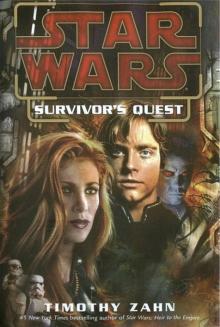 Star Wars: Survivor's Quest
Star Wars: Survivor's Quest Hero of Cartao 1. Hero's call
Hero of Cartao 1. Hero's call The Domino Pattern (Quadrail Book 4)
The Domino Pattern (Quadrail Book 4)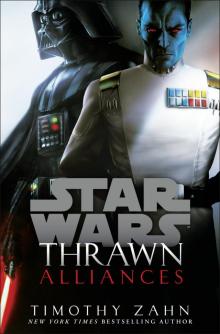 Thrawn_Alliances_Star Wars
Thrawn_Alliances_Star Wars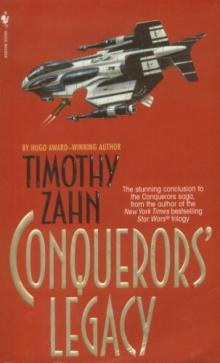 Conquerors 3 - Conquerors' Legacy
Conquerors 3 - Conquerors' Legacy The Blackcollar Series
The Blackcollar Series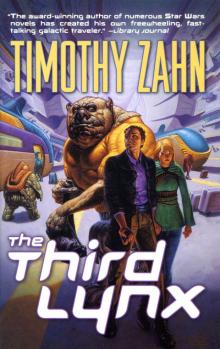 The Third Lynx q-2
The Third Lynx q-2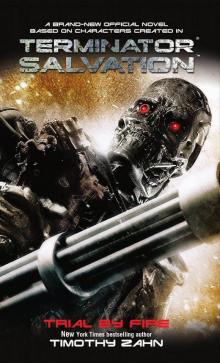 Terminator Salvation: Trial by Fire
Terminator Salvation: Trial by Fire Star Wars - Mist Encounter
Star Wars - Mist Encounter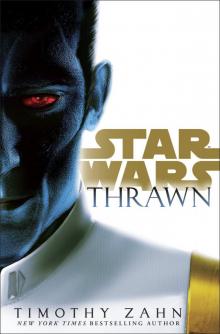 Thrawn
Thrawn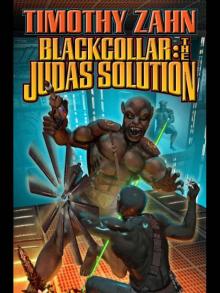 Blackcollar-The Judas Solution
Blackcollar-The Judas Solution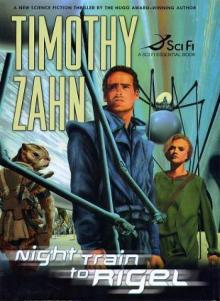 Night Train to Rigel q-1
Night Train to Rigel q-1 Cascade Point
Cascade Point Allegiance
Allegiance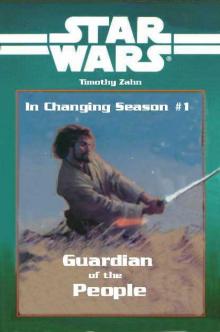 Star Wars - In Changing Season 1 - Guardian of the People
Star Wars - In Changing Season 1 - Guardian of the People Terminator Salvation - From the Ashes ts-2
Terminator Salvation - From the Ashes ts-2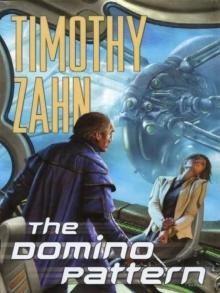 The Domino Pattern q-4
The Domino Pattern q-4 The Big Picture
The Big Picture Star Wars: Fool's Bargain
Star Wars: Fool's Bargain Star Wars: Choices of One
Star Wars: Choices of One Star Wars - Jade Solitaire - Unpublished
Star Wars - Jade Solitaire - Unpublished Star Wars: Adventure Journal: Mist Encounter
Star Wars: Adventure Journal: Mist Encounter Outbound Flight
Outbound Flight Star Wars - The Hero of Cartao - Part 1 - Hero's Call
Star Wars - The Hero of Cartao - Part 1 - Hero's Call Thrawn 1 - Specter of the Past
Thrawn 1 - Specter of the Past Survivor's Quest
Survivor's Quest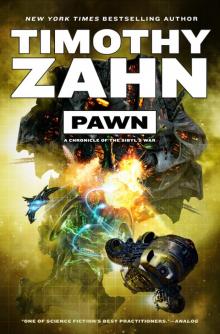 Pawn
Pawn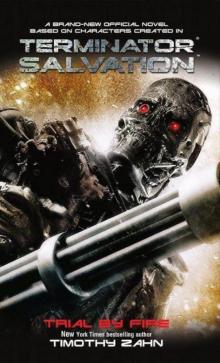 Trial By Fire ts-4
Trial By Fire ts-4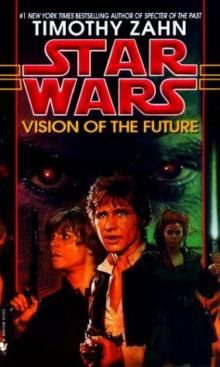 Vision of the future swhot-2
Vision of the future swhot-2 Star Song and Other Stories
Star Song and Other Stories Dark Force Rising
Dark Force Rising Star Wars: Dark Force Rising
Star Wars: Dark Force Rising Star Wars - Outbound Flight
Star Wars - Outbound Flight Blackcollar: The Judas Solution
Blackcollar: The Judas Solution The Green And The Gray
The Green And The Gray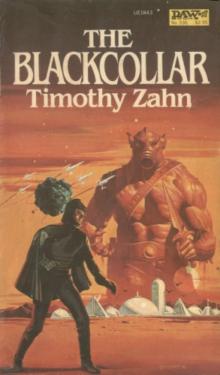 Blackcollar: The Blackcollar
Blackcollar: The Blackcollar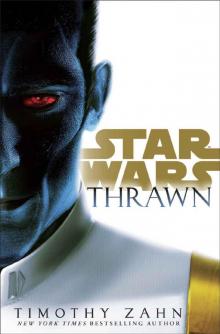 Star Wars_Thrawn
Star Wars_Thrawn Star Wars - Duel
Star Wars - Duel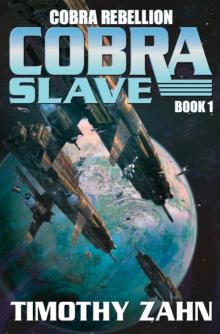 Cobra Slave-eARC
Cobra Slave-eARC Star Wars: Heir to the Empire
Star Wars: Heir to the Empire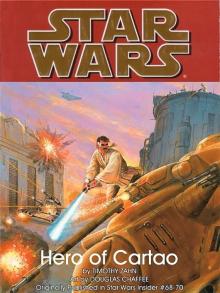 Star Wars: Clone Wars Stories: Hero of Cartao
Star Wars: Clone Wars Stories: Hero of Cartao The Bounty Hunter Wars 1 The Mandalorian Armor
The Bounty Hunter Wars 1 The Mandalorian Armor Dark Force Rising (Star Wars) swtt-2
Dark Force Rising (Star Wars) swtt-2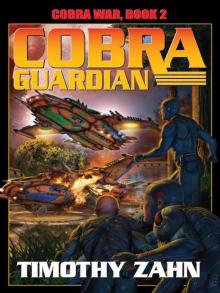 Cobra Guardian: Cobra War: Book Two
Cobra Guardian: Cobra War: Book Two The Third Lynx (Quadrail Book 2)
The Third Lynx (Quadrail Book 2) Time Bomb And Zahndry Others
Time Bomb And Zahndry Others Blackcollar: The Backlash Mission
Blackcollar: The Backlash Mission Winner Lose All--A Lando Calrissian Tale: Star Wars
Winner Lose All--A Lando Calrissian Tale: Star Wars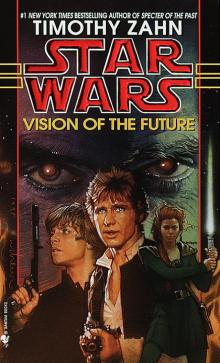 Star Wars: The Hand of Thrawn II: Vision of the Future
Star Wars: The Hand of Thrawn II: Vision of the Future Specter of the Past
Specter of the Past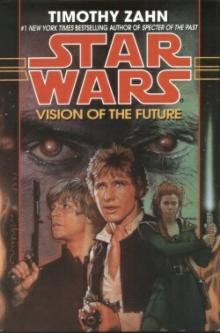 Star Wars - Hand of Thrawn 2 - Vision of the Future
Star Wars - Hand of Thrawn 2 - Vision of the Future Fool's Bargain
Fool's Bargain From the Ashes
From the Ashes Coming of Age
Coming of Age